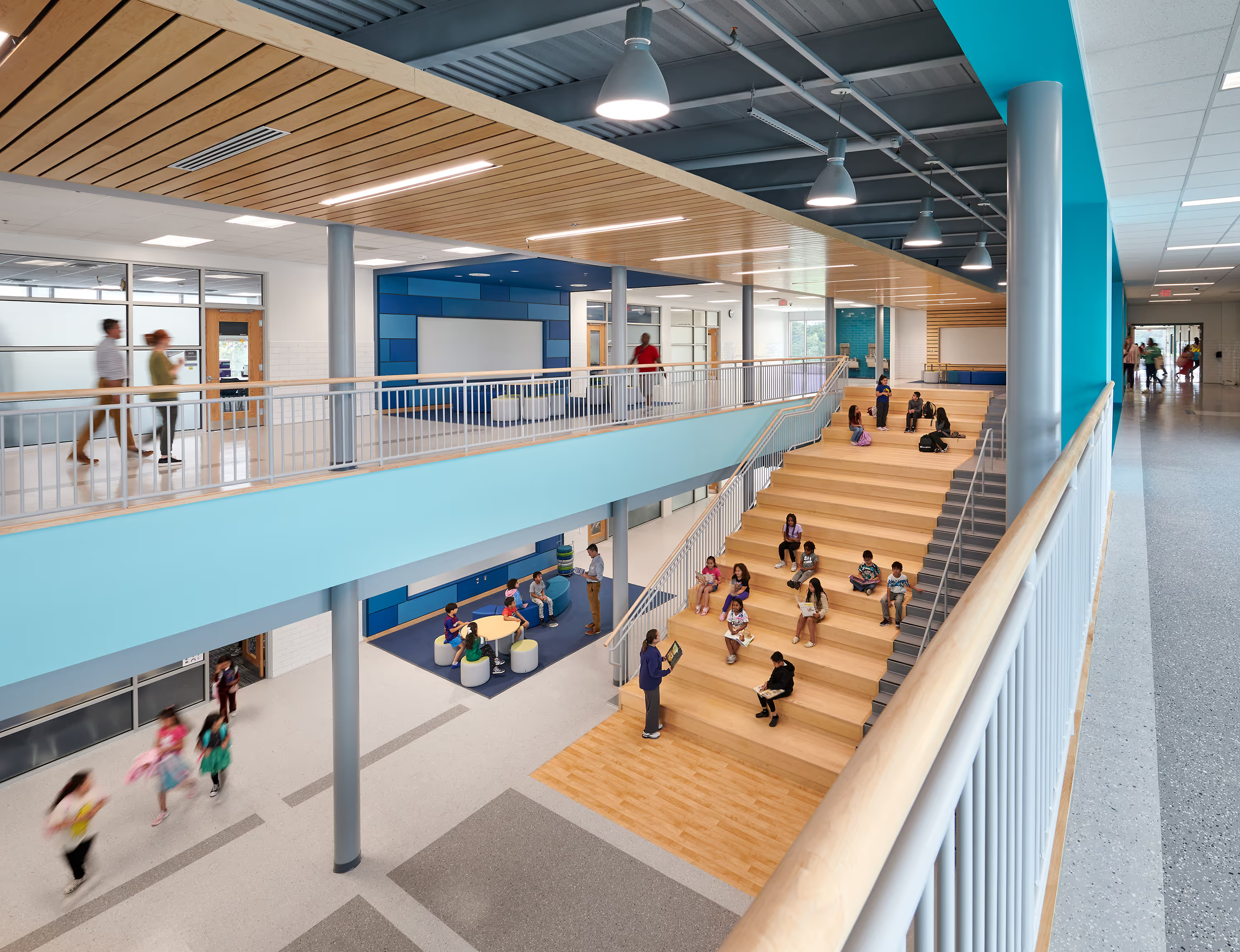
Patrick Henry K-8 School and Recreation Center
Alexandria City and Alexandria City Public Schools combined two initiatives—a school replacement and a recreation center upgrade—into one project that shares resources and reduces costs. The 136,600-square-foot school and 19,000-square-foot recreation center occupy a 13-acre site that has anchored the neighborhood since the 1950s.

Site and Design Integration
The property's natural grade creates separate entrances for school and community activities while ensuring security. A single-story recreation wing transitions into a three-story academic section, matching the scale of both nearby homes and apartment buildings. Red brick and horizontal tan cast bands echo Old Town Alexandria's architecture. Clerestory windows illuminate corridors, while color accents help students navigate academic wings.
Educational Design
The school accommodates 900 students—40 percent more than its predecessor—in grade-level "neighborhoods" surrounding shared study zones. These extended learning spaces let teachers combine classes or divide into small groups based on lesson requirements. Floor-to-ceiling windows connect each 1,200-square-foot classroom to common areas. Art studios, science laboratories, music rooms, a media center, and a black box theatre support specialized programs.
Shared Resources
The combined design yielded more usable square footage than separate structures would have provided. The recreation center contains running lanes, multi-use courts, and fitness rooms across 19,000 square feet. An additional 12,000 square feet—including a gymnasium, multipurpose room, and black box theatre—serves students until 4:30 p.m. before opening for community programs. This arrangement expanded available space while lowering construction and maintenance costs.
Sustainable Design
LEED Silver certification recognizes specific environmental features: enhanced thermal envelope systems, efficient lighting, and advanced HVAC equipment reduce annual energy costs by $115,000. Low-flow fixtures cut water use by 1.5 million gallons annually. Construction teams recycled 93 percent of project waste. Twenty-six percent of materials contained recycled content, while 31 percent came from manufacturers within 500 miles of Alexandria.
Community Input
In 167 meetings with residents, school staff, and city officials, designers adapted plans to address concerns about traffic patterns and open space. These discussions determined parking lot locations and bus loop configurations.
Results
The Patrick Henry project shows how merging public facilities can improve services while reducing expenses. The design meets educational, recreational, and neighborhood needs while creating a template for future Alexandria city-school partnerships.


































